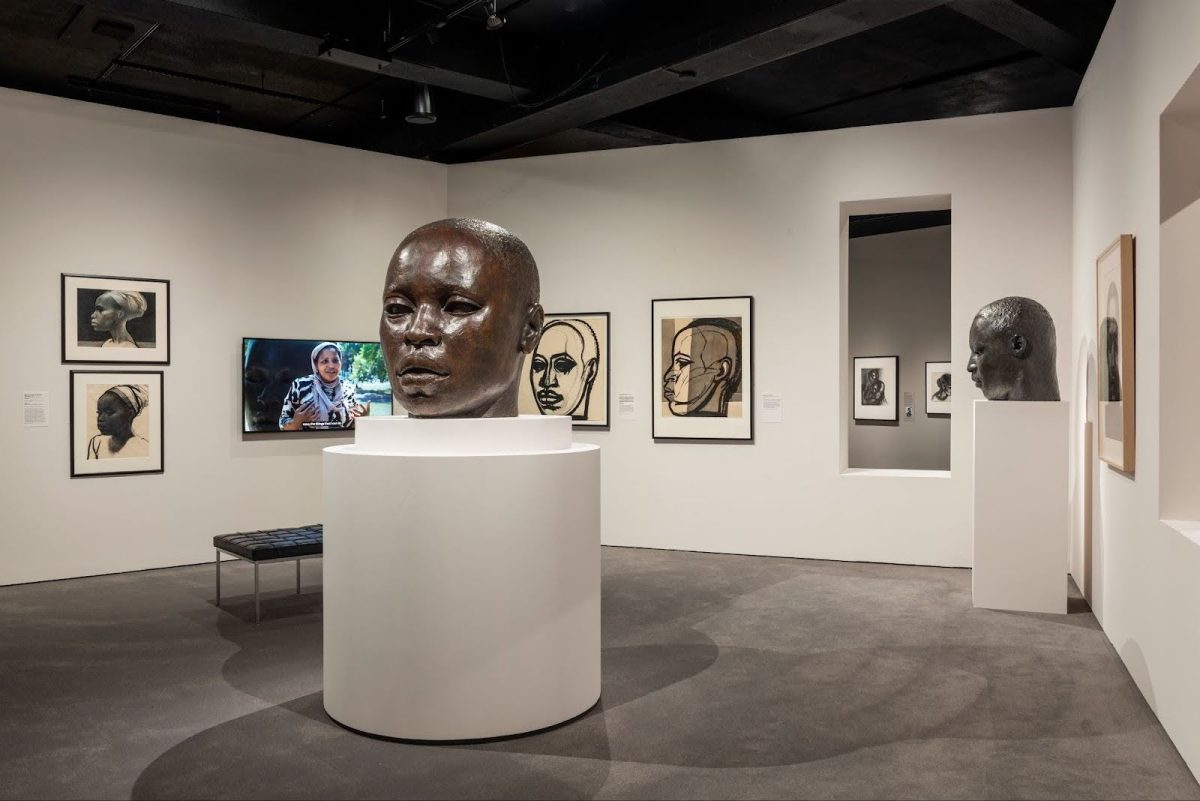By Anthony Formicola, news correspondent
Earlier this week at the Golden Globes, co-host Tina Fey hit the nail on the head when she referred to the controversy surrounding the film “The Interview” as “the biggest story in Hollywood this year.”
In response to North Korean threats of terrorism against any venues that showed the movie, “The Interview’s” theatrical release was cancelled—then revised and restored, setting off a national conversation about a variety of issues including censorship and new forms of entertainment distribution.
Back when it was first announced in March of 2013, the comedy, starring Seth Rogen and James Franco, seemed to be nothing more than another joke to pile atop the heap of mockery that had recently been directed towards the small Communist nation.
The movie’s plot focuses on two journalists (Rogen and Franco) tasked by the FBI to assassinate North Korea’s leader, Kim Jong-un (Randall Park), after acquiring an exclusive interview in Pyongyang with the dictator himself.
However, in June of 2014, when the Korean Central News Agency declared the film to be a “blatant act of terrorism” and promised a “merciless” response upon its release, it was a sign of bigger things to come.
Sony announced in August of 2014 that the film would be delayed until Christmas Day, partly in order to make time for post-production alterations that would increase sensitivity to North Korea.
In a development that initially seemed unrelated, Sony’s computer networks were breached on Nov. 24 The hackers, who called themselves “Guardians of Peace,” leaked internal emails and sensitive employee information to the public. On Dec. 8, the Guardians demanded that “the movie of terrorism” be pulled.
The Guardians of Peace released a second message on Dec.16 that promised a “bitter fate” to anyone who planned to attend a showing of “The Interview” and encouraged them to “remember the 11th of September 2001.” Although the North Korean government denied ordering the hacks and issuing the terrorist remarks, US officials declared that they were in possession of evidence that North Korea was “centrally involved,” according to the New York Times.
On Dec. 24, Sony made the movie immediately available to rent for $5.99 and to buy for $14.99 on several streaming services including YouTube, Google Play and Xbox Video.
As these final developments came to light, it became clear that the events surrounding “The Interview” would do more than briefly capture national attention. They also brought to the foreground several questions about the current state of American entertainment. One issue concerned the fear that this situation would begin to result in a greater amount of self-censoring in the movie industry to avoid the type of controversy and financial failure that Sony experienced.
On the other hand, history has its examples of filmmakers who stood firm in the face of “great personal and financial risk.” Nathan Blake, coordinator of Northeastern’s Media and Screen Studies Program, cited Charlie Chaplin and his 1940 satire of Adolf Hitler, “The Great Dictator.”
Blake also pointed to the Charlie Hebdo tragedy as an example of “the extent to which such satire can instigate real violence.” The events surrounding “The Interview” also led to discussions about the straight-to-streaming model for a big-budget film. Variety magazine estimates that Sony will lose up to $40 million on the film, which had an original budget of $44. As for the content of the film, reviews have been mixed at best. A frequent refrain for critics was to bring up the irony that such an average and potentially offensive movie was initially cast as a champion of the values of free speech and artistic courage. The film has a 52 percent on Rotten Tomatoes.
Photo courtesy, creative commons, Colombia Pictures









